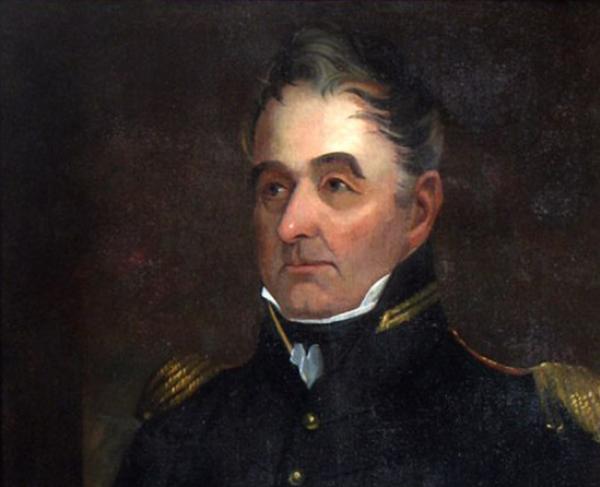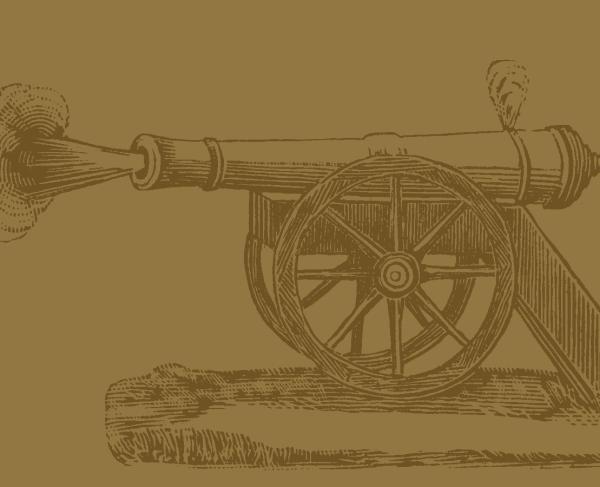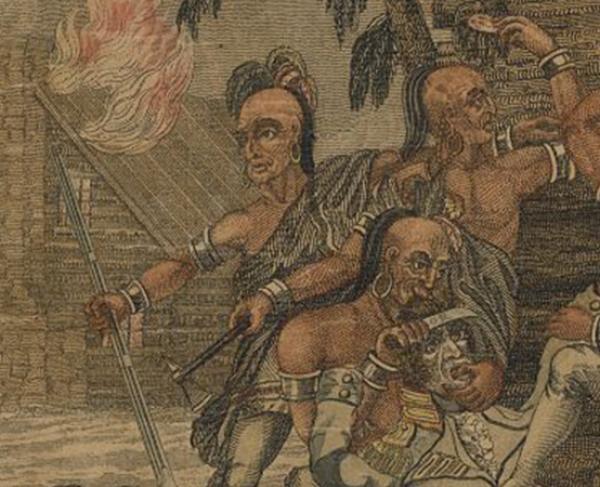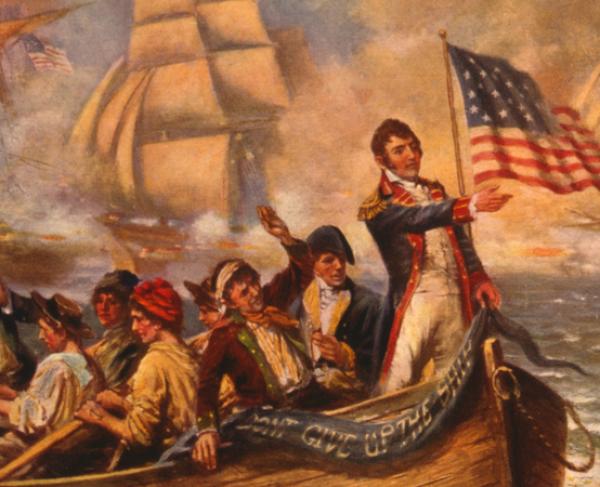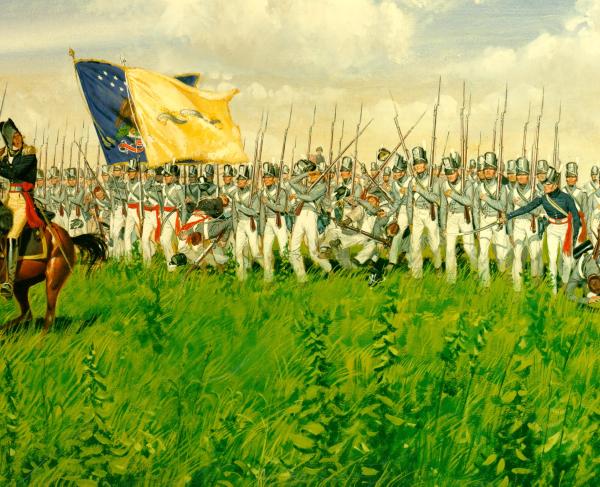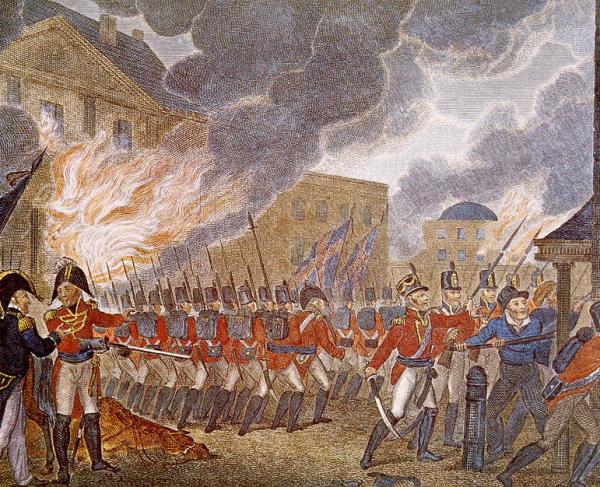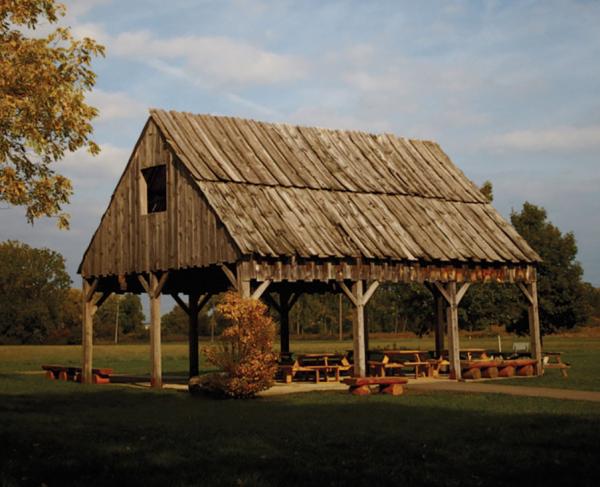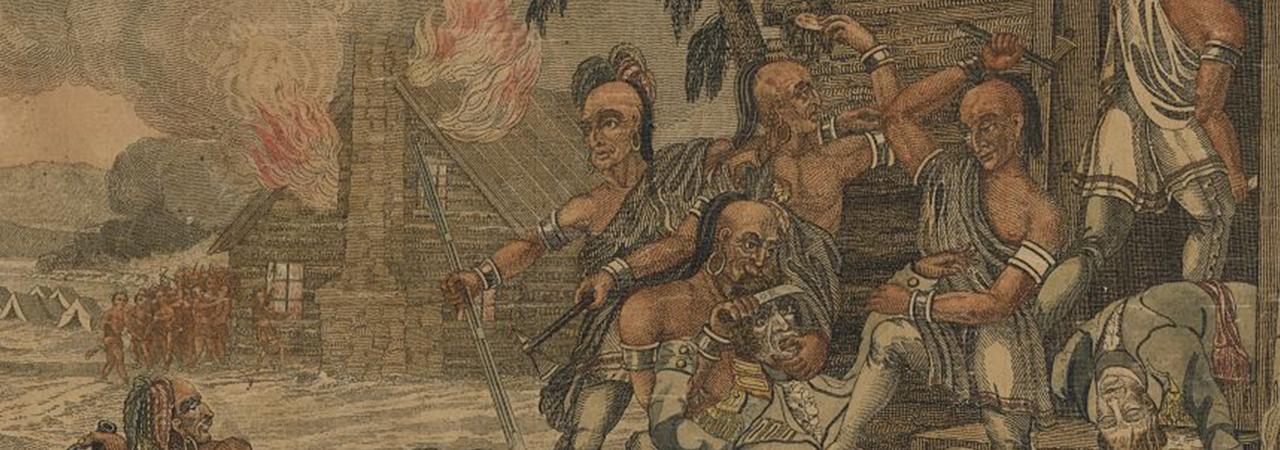
River Raisin
Battles of Frenchtown
Monroe, MI | Jan 18 - 23, 1813
In January 1813, American troops under the command of General James Winchester advanced from the Maumee Rapids against a British force at Frenchtown, south of Detroit. Winchester engaged a British and Native force there under Col. Henry Procter on January 22 which resulted in a rout of the American force. In the engagement’s aftermath, hundreds of Americans were captured, with a number of wounded prisoners killed by the Native warriors.
How It Ended
British Victory. After surrendering most of his troops, Winchester and what remained of his army marched towards British-held Detroit, leaving behind wounded who could not walk. The day after the battle, Native American warriors returned to Frenchtown began killing many of the mortally wounded.
In Context
The Michigan Territory became a focal point shortly after war broke out between the young United States and Great Britain in June 1812. U.S. forces set their eyes on the capture of Upper Canada. However, the war effort received a major blow when General William Hull surrendered the Northwestern Army and Fort Detroit to General Isaac Brock on August 16, 1812.
The following month, President James Madison appointed the former governor of the Indiana Territory and current brigadier general in the Kentucky militia, William Henry Harrison, the new commander in the Old Northwest. Madison charged Harrison with rebuilding the American army and the capture of Fort Detroit.
Despite the onset of winter, Harrison began his campaign and ordered his second in command, General James Winchester, to the Maumee Rapids. Harrison strictly forbade Winchester from advancing beyond the Rapids; however, with reports of a British presence at Frenchtown, Winchester ordered Lt. Col. William Lewis with the 17th U.S. Infantry, elements of the 19th U.S. Infantry and Kentucky militia north.
934
1,397
Lewis arrived near Frenchtown on the afternoon of January 18, 1813. Lewis decided to attack because the town was defended by a mere force of 200 militiamen and Native Warriors. After getting his men into line, Lewis charged his force of roughly 700 men across the frozen Raisin River and drove the British force out of the town. News of the fight prompted Winchester to move north and join Lewis. In addition to the 17th U.S., Winchester mustered a little over 900 men in the form of the 1st Kentucky Volunteer Regiment, 1st Kentucky Rifle Regiment, and 5th Kentucky Volunteer Regiment. The day after Lewis occupied Frenchtown, British Colonel Henry Procter mobilized a force to move against Winchester. Procter's command consisted of British Regulars supported by Canadian militia and warriors from some seventeen tribes led by the war chief Roundhead. His command numbered nearly 1,400.
Before dawn on January 22, Procter's men crept toward Winchester's position. Inexplicably, the U.S. commander failed to post pickets, much to the dissatisfaction of Lewis. The British completely surprised the sleeping Americans. Rousted from their slumber and with their backs to the Raisin River, Winchester's men put up a stiff resistance that lasted for twenty minutes. The Kentuckians stood on the left against Procter's Canadians and the Native American warriors, while the U.S. Regulars held the right and faced the bulk of Roundhead's warriors.
Procter's artillery soon began to take its toll, and the 17th and 19th U.S. steadily fell back toward the frozen Raisin. Their retreat prompted the warriors to attack, and they swarmed among the Regulars, inflicting numerous casualties. Winchester was taken prisoner in the melee and sent to Procter. Unable to break through the Kentucky line, Procter ordered Winchester to carry a flag of truce to his men, and Winchester agreed. After first refusing to surrender, many of the surviving Kentuckians retreated towards the town; after several hours and running low on ammunition, the Kentuckians surrendered.
934
182
Procter withdrew with nearly 500 prisoners but left around 60 severely wounded in Frenchtown. The citizens kindly administered care and took the Americans into their homes. Native American Warriors returned to Frenchtown the following day. The remaining prisoners who could walk were evacuated, and those that could not were killed since the Native Americans did not want to tend to the wounded.
In a little over five months, Winchester's defeat marked the second loss of an American force in the Michigan Territory and compelled Harrison to delay his campaign until the spring. He recaptured Fort Detroit at the end of September. On October 5, Harrison caught up with and smashed Procter's force along the banks of the Thames River in Upper Canada. Shouting "Remember the Raisin," Colonel Richard Johnson's Kentucky Mounted Volunteers launched an assault that broke through Procter's line and turned the tide of the engagement in the American's favor.
Many Americans were angered over the battle and subsequent death of the wounded. Kentuckians were especially incensed given their state’s participation in the battle and began rallying support with the cry, "Remember the Raisin." At the Battle of the Thames over a year later, Colonel Richard Johnson's Kentucky Mounted Volunteers launched an assault that broke through the British lines during the charge, the Kentuckians shouting the battle cry.
When department commander Harrison announced his intentions of taking Detroit, Kentucky sent close to 1,000 men to help with the effort. Many of the Kentuckians were placed under the command of Winchester, fought bravely in the battle and were the last to surrender.
River Raisin: Featured Resources
All battles of the Detroit Frontier Campaign
United States: 189
United Kingdom: 120
Est. Casualties: 1,116
United States: 934
United Kingdom: 182
Est. Casualties: 1,107
United States: 986
United Kingdom: 121
Related Battles
934
1,397
934
182
